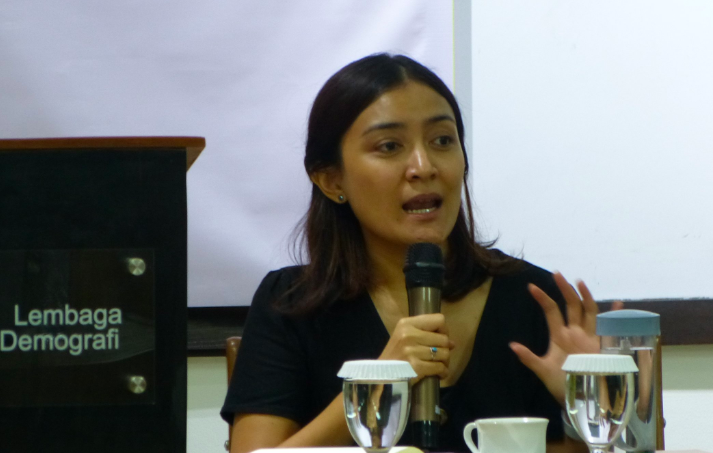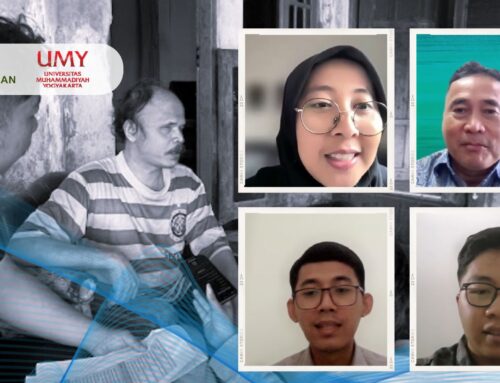Since the dawn of Reformasi, symbols and cultural practices of Islamic identity has become more visible in the public sphere. Interestingly, this phenomenon coincides with the time of rapid growth of Indonesia’s democracy and consumption. Having observed this change, Inaya Rakhmani (Faculty of Social and Political Sciences, Universitas Indonesia) conducted a study on Indonesia’s Muslim middle class, which was presented on an FKP seminar hosted by Lembaga Demografi FEB UI on Wednesday, 21 August 2019.
By objective measures, the Indonesia’s middle class is growing. With greater wealth, education, and consumer goods it is expected that people’s beliefs become more moderate. However, this study found that increasing inequality in Indonesia creates the tendency for the people to hold onto conservative values to face the rapid transformations in a ‘neoliberal’ world. This study defines neoliberalism as the privatization of basic services that are ideally provided by the state (e.g. education, healthcare). This phenomenon has made it increasingly difficult to have upward economic mobility, as these institutions have become more exclusive to those with higher income. According to Inaya, as a result, those who are not able to access these services resort to religious symbols to cope.
The consumer sector in Indonesia is heavily market driven, as seen from the mushrooming of malls in Indonesia’s large cities. With more malls taking up areas of the city, other public spaces such as gardens and public arenas in which people with differing backgrounds and opinions could interact cease to exist. On television, religious programs that were once aired during isolated time slots are slowly aired during primetime at the height of the watching behaviour of the middle class. Consumer products that are produced globally are also adjusted by incorporating Islamic symbols so that they would be accepted by Indonesia’s Muslim majority market. These factors contribute to the mainstreaming of Islam in public spaces through market mechanisms.
Gatherings such as Quran recitations are also used as a marketplace between Muslim women. Many admit that they feel a sense of community when buying from people they know—this is something that has been lost during the neoliberalization of the market. During these interactions, norms and doctrines are also socialized. However, the middle class is increasingly educated and rational. Therefore, although not entirely conservative, they tend to conserve certain selective understandings of Islamic doctrine. All in all, the conservatizing of Indonesia’s Muslim middle class is not only about politics, it’s also about the neoliberalization of the market, which creates social segregations and increases conservatism. It is also important to note that although this study discusses the intersection of neoliberal values and Islam, this phenomenon also exists in other kinds of identities.
The slides of this presentation is not made available to the public by request of the speaker. For the complete presentation and Q&A session, please refer to the video and materials provided.





